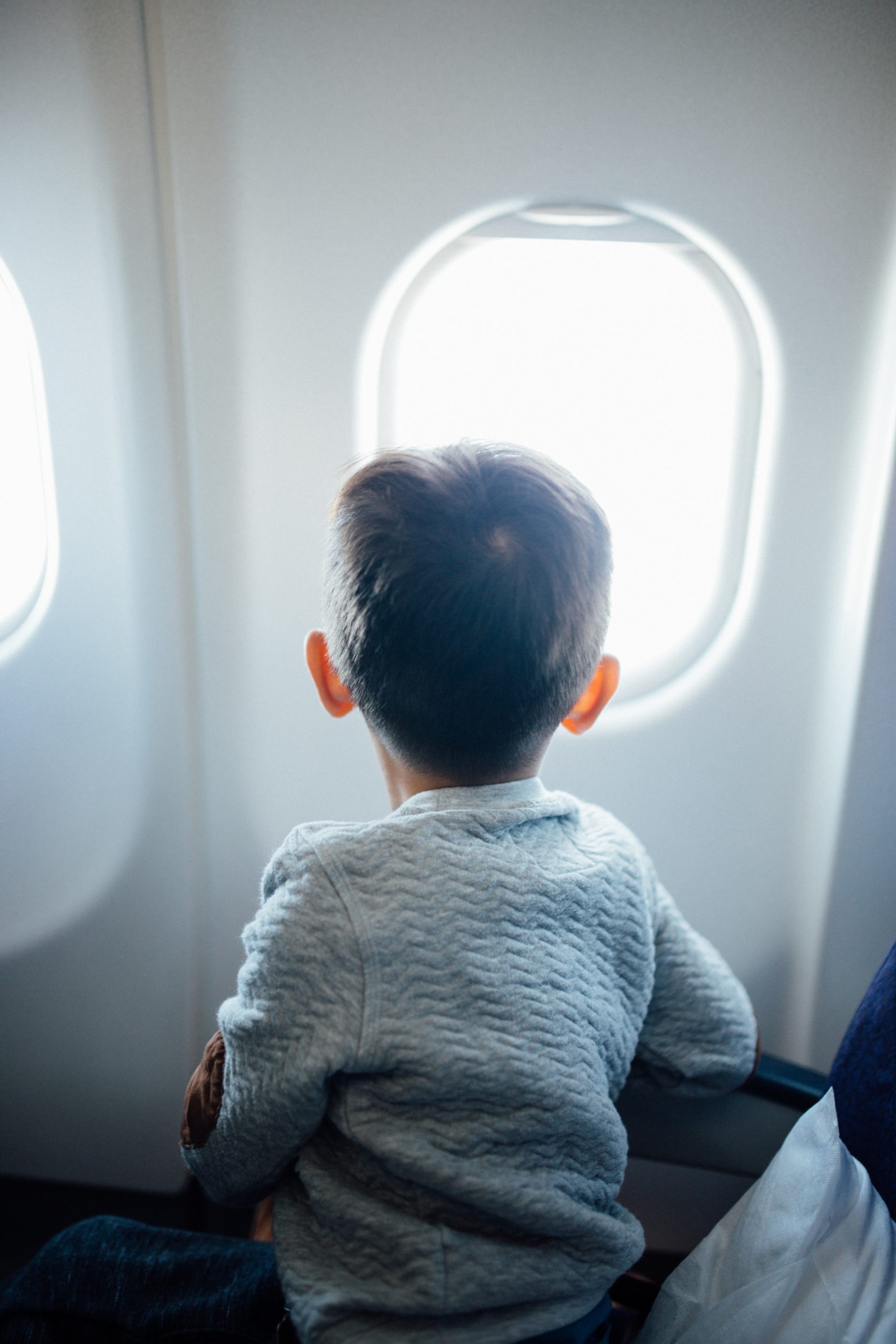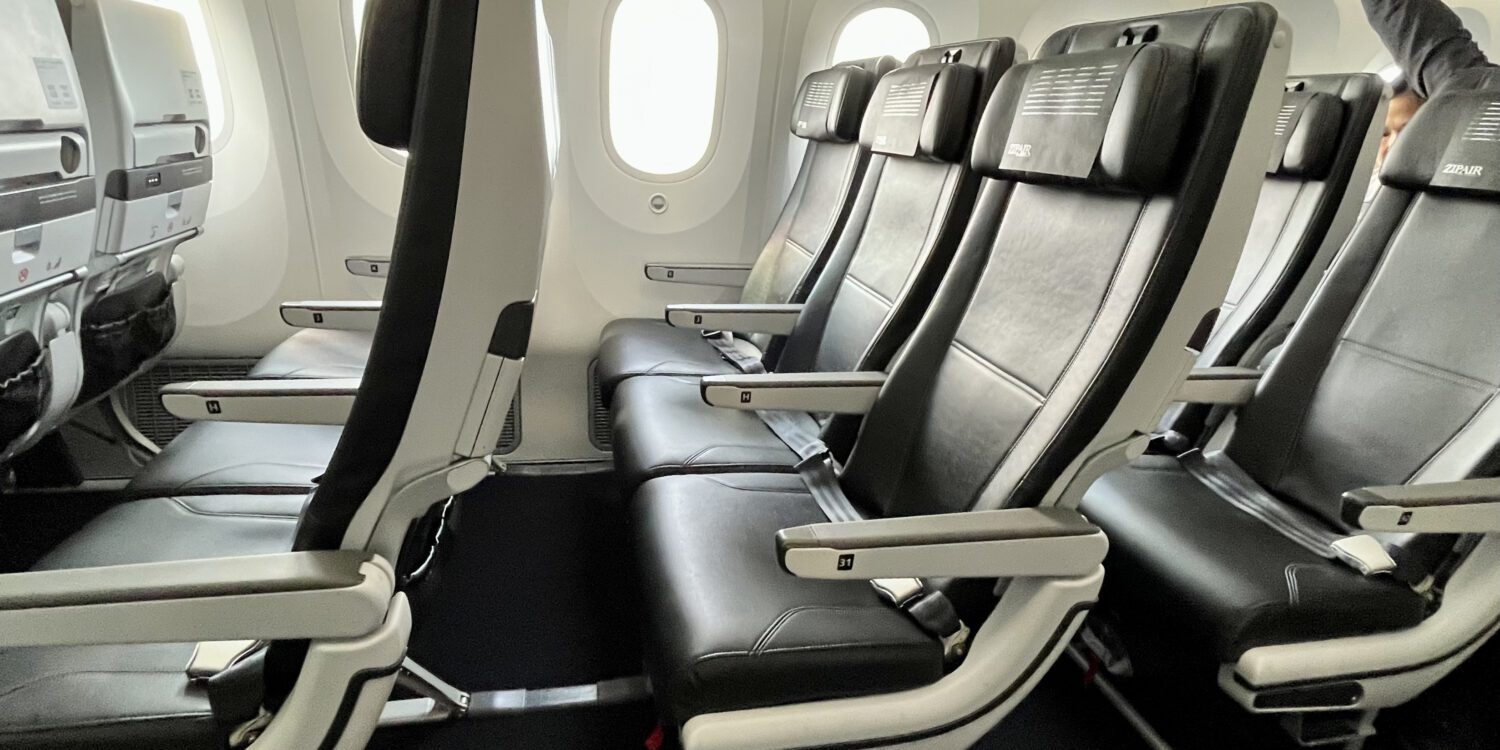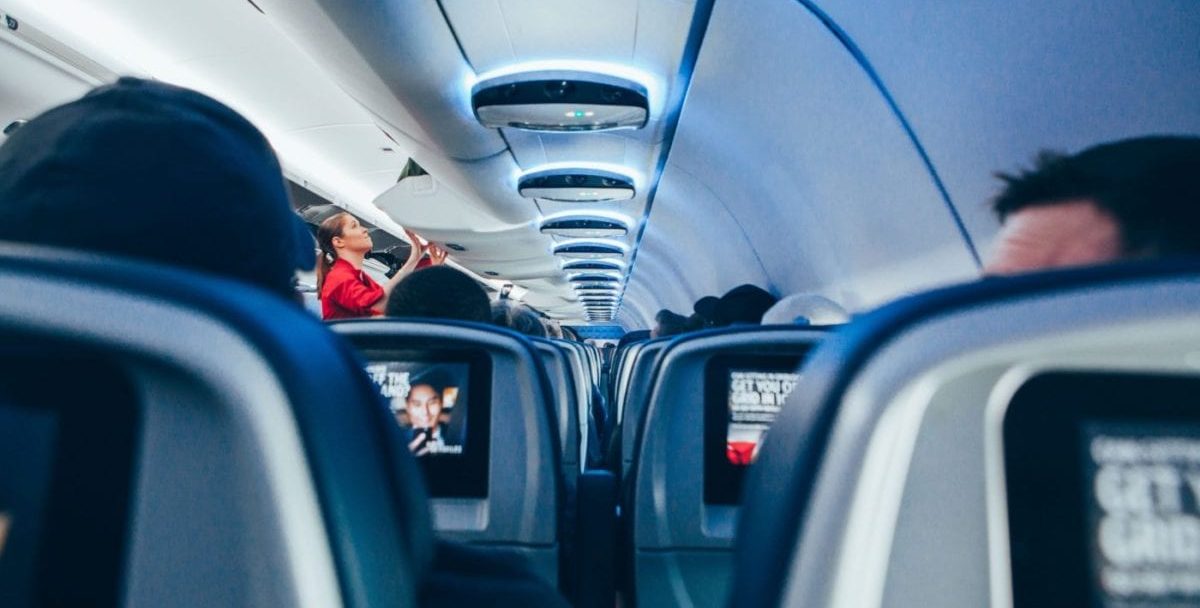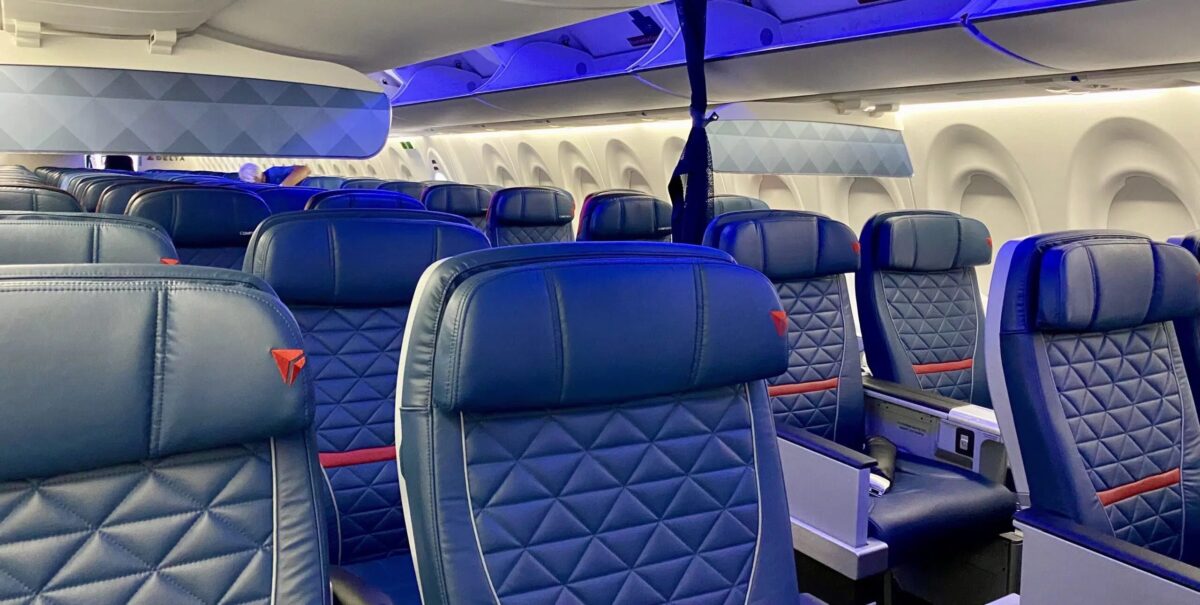Two years after ramping up pressure on airlines to guarantee families with children can sit together without paying extra fees or a higher fare, the Biden Administration is finally preparing to lay down the law.
The Department of Transportation (DOT) unveiled the nuts and bolts of what a family seating rule would look like in proposed federal rulemaking Thursday. If enacted, it would require airlines to place all children under 13 next to at least one accompanying adult within 48 hours of booking – even on the cheapest basic economy fares that don't allow free seat selection. And if they can't, airlines would be forced to move families to another flight where it's possible … or offer a full refund.
Still, this may not happen anytime soon.
Federal rules can take months, if not years, to actually become the law of the land. A rule requiring airlines to disclose fees for baggage and cancellation is now in limbo after a federal court temporarily blocked it this week. And with a presidential election looming, there's no guarantee free family seating is a priority under a new administration.
Trying to ensure families don't pay more to sit next to their children has been part of a broader regulatory push under the Biden Administration. Other rules have cracked down on airlines on everything from issuing refunds faster to mandatory compensation when flights get delayed or canceled.
Some airlines, like Alaska and American, already allow families to sit together on all flights while others like United have rolled out new processes to make that possible. But others, including Delta and many budget airlines, simply tell families they may need to buy a pricier fare that includes seat assignment or pay extra to pick two seats next to each other.
“Many airlines still don’t guarantee family seating, which means parents wonder if they’ll have to pay extra just to be seated with their young child. Flying with children is already complicated enough without having to worry about that,” said Transportation Secretary Pete Buttigieg, whose previous calls on Congress to pass a law themselves went unanswered.
Here's a closer look at what the DOT is proposing.
The Family Seating Rule Proposal
On its face, the proposed federal rule is simple.
The rule applies to all children under 13, requiring that airlines seat them next to at least one accompanying adult (over 14) at no additional cost.
If adjacent seats are available at the time a family books their tickets together, an airline would be required to assign those seats to the family. Airlines would have to comply with this rule within 48 hours of booking. And it would apply to any flight that touches American soil, whether it's operated by a U.S. carrier or a foreign airline.
Notably, the proposal does not require a child to be seated with both parents – just one. In this case, a family of four with two parents could be seated separately, so long as each child is with one parent.
But there could be some wiggle room for airlines to meet this requirement.
The rule proposal defines “adjacent” as “two or more seats positioned next to each other in the same row of the aircraft and not separated by an aisle.” But the DOT is specifically asking for comments on this part of the rule: Should two seats across the aisle be sufficient? Or what about seats 21C and 22C, one row behind?
If seats are not available next to each other, the proposed rule would require airlines to:
- Allow the family to choose to wait for adjacent seating to become available on that flight or get rebooked onto another flight where adjacent seats are available
- Offer a full refund for the entire family to cancel altogether.
So long as flights are purchased more than two weeks prior to departure, the airline would have to give the family seven days to choose between a refund or the option to wait it out. If the family purchases within two weeks of departure, they must be given “a reasonable amount of time” to choose.
This is proposed rulemaking, so plenty of details are up for debate. The DOT is explicitly asking for input, including if traveling families should be assigned seats “as close as possible” if they choose to take a flight where they're not directly next to each other.
Finally, the rule would require seating children next to adults on every segment of the journey – at least so long as those segments touch U.S. soil. And it applies to every fare class and cabin, from basic economy to first class.
Who is Considered “Family”?
While this might strike a chord with families, it goes beyond that.
This rule would apply to anyone under the age of 13, requiring airlines to seat them with any “accompanying adult” aged 14 or older at no additional cost. It does not explicitly say “family” because the rule should apply equally to a “family friend,” a “caretaker,” or an older sibling, too.
There's one critical caveat: Children and adults must be booked on the same reservation for these requirements to kick in.
Exceptions
The DOT is proposing a few exceptions to this family seating requirement.
For starters, if a family declines to accept the adjacent seats or chooses to sit apart from a child, the airlines wouldn't be held accountable.
But there are also exception for large families as well as aircraft size restrictions:
- If there is a family of 7 and only six seats in a row, the airline would no longer be responsible for getting them in the same row together.
- That also applies for large families in smaller planes. If a small, regional jet only has three seats per row, the airline can't be responsible for putting an adult and three children into one row because the number of seats simply doesn't exist.
In both cases, the airlines would have to seat young children “as close as possible” to their adult – like across the aisle from or directly in front or behind them.
Finally, the airlines won't be responsible if families don't check-in or board according to the airline's rules.
What Airlines Would Be Subjected to Free Seating Rule?
This free-seating rule would apply to virtually any airline flying to or from the U.S.
According to the rule proposal, all commercial airlines that operate flights that touch U.S. soil would have to adhere to these rules. There's just one exception: Planes that carry under 30 passengers would be technically exempt.
That would, of course, include the likes of American, Delta, and United. But even foreign airlines like Lufthansa, Japan Airlines, and any other carrier flying to or from the U.S would be required to honor this rule too.
For airlines that haven't already done so, this will require new technological systems and policy changes to make it a reality. And carriers who don't do so to ensure they seat children with family members or other accompanying adults will face fines.
According to the DOT, carriers who charge fees beyond their fare for families to sit together will be slapped with a civil penalty. Each individual child affected by the rule would incur a separate fee, though no exact amount was outlined in the proposal.
When Will the Family Seating Policy Be Implemented?
That's the big question.
For now, this is just a proposal. The federal government is seeking feedback from airlines and travelers alike as they look to craft a final rule.
And that's just the next step in the long federal rulemaking process, which can take many months and even years to come to a close. Case in point: The federal government first proposed raising the cost of Global Entry way back in 2020 … and a hike to $120 will finally take effect in October 2024.
There is no official date that this new requirement would go into effect. And with President Joe Biden leaving office in early 2025, the next president could decide to scrap it altogether.
Bottom line: Your flight in 2024 won't be affected by this role. Odds are, your flight in 2025 won't be, either. Beyond that, it's anyone's guess.
Current Family Seating Policies, Explained
Today, just what families can expect with seating varies wildly from airline to airline.
Most major airlines allow travelers to select many seats for free … but not when they buy the cheapest basic economy fares, which come without free seat assignment and other perks. Want to ensure you can sit together? That's part of how airlines hope to convince travelers to buy a main cabin fare, which often cost $35 or more apiece each way.
Still, some major carriers have gone further than others to give adults peace of mind that they won't be separated from their children:
- Alaska Airlines: “Minors under the age of 13 can be seated with at least one adult in their party in advance by calling our contact center,” the airline previously told Thrifty Traveler.
- American Airlines: “We’ll assign seats so children under 15 are next to at least 1 adult,” American explains on its website.
- Delta Air Lines: “Customers who need to be seated beside another person in their family are encouraged to select Delta’s Main Cabin product that allows for seat selections and ticket changes,” Delta previously told Thrifty Traveler.
- Southwest Airlines: Southwest doesn't offer seat assignments, period, instead using a first-come, first-served boarding model that allows families to board early and pick seats together. But that open-seating model is expected to end sometime in 2025.
- United Airlines: United rolled out a new feature last year that allows families to automatically select seats next to one another, though that policy currently only applies to children under 12.
Read more: Can I Sit with My Kids Flying Basic Economy? Questions, Answered

Bottom Line
The Biden Administration and the Department of Transportation have honed in on family seating policy for airlines, finally unveiling a proposed rule that would require airlines to seat children next to accompanying adults without fees or fare differences.
It's a long-awaited move, but still not a sure thing. There's no specific timeline for when this could take effect – if at all.







please make them take all of the middle seats!